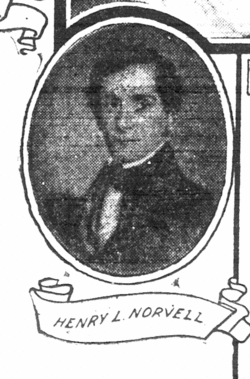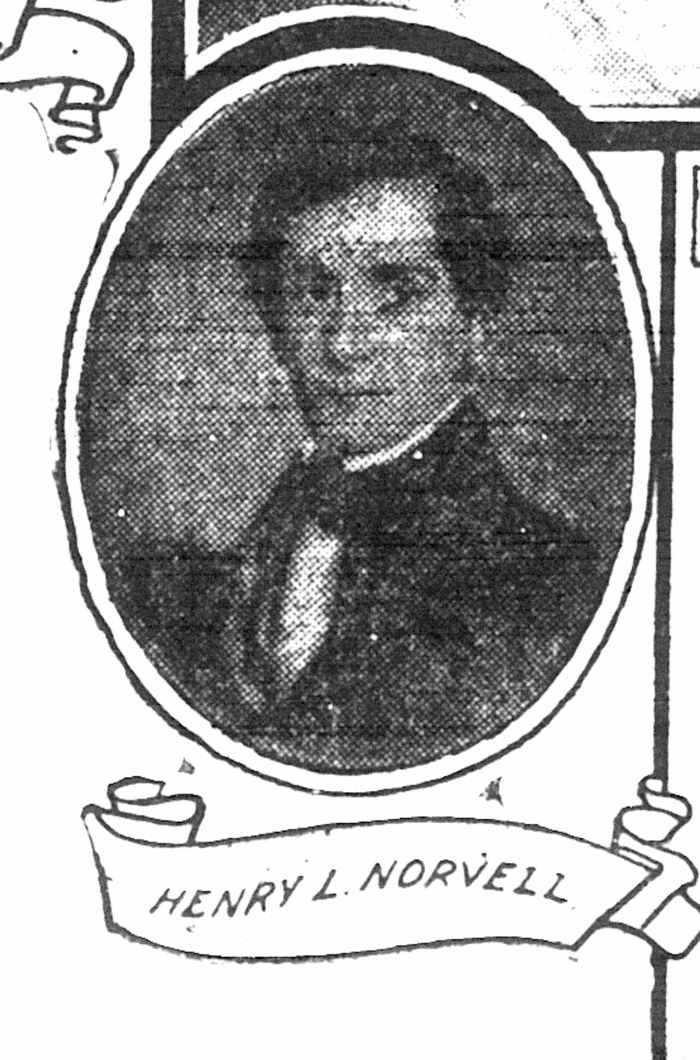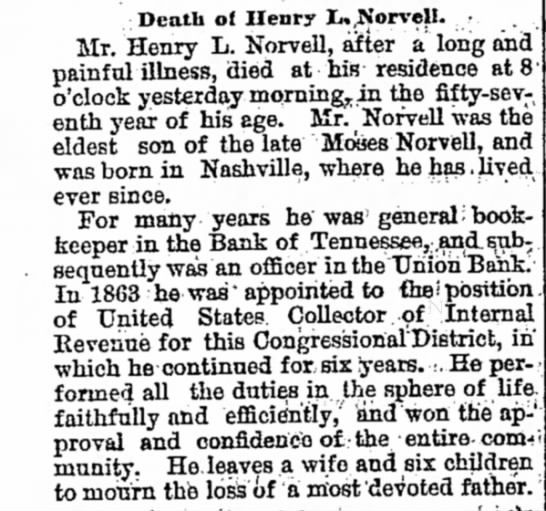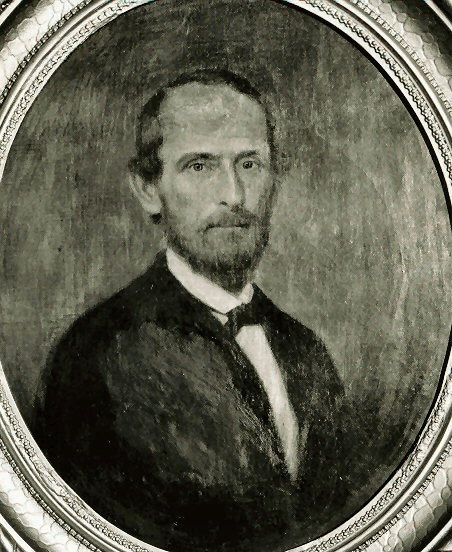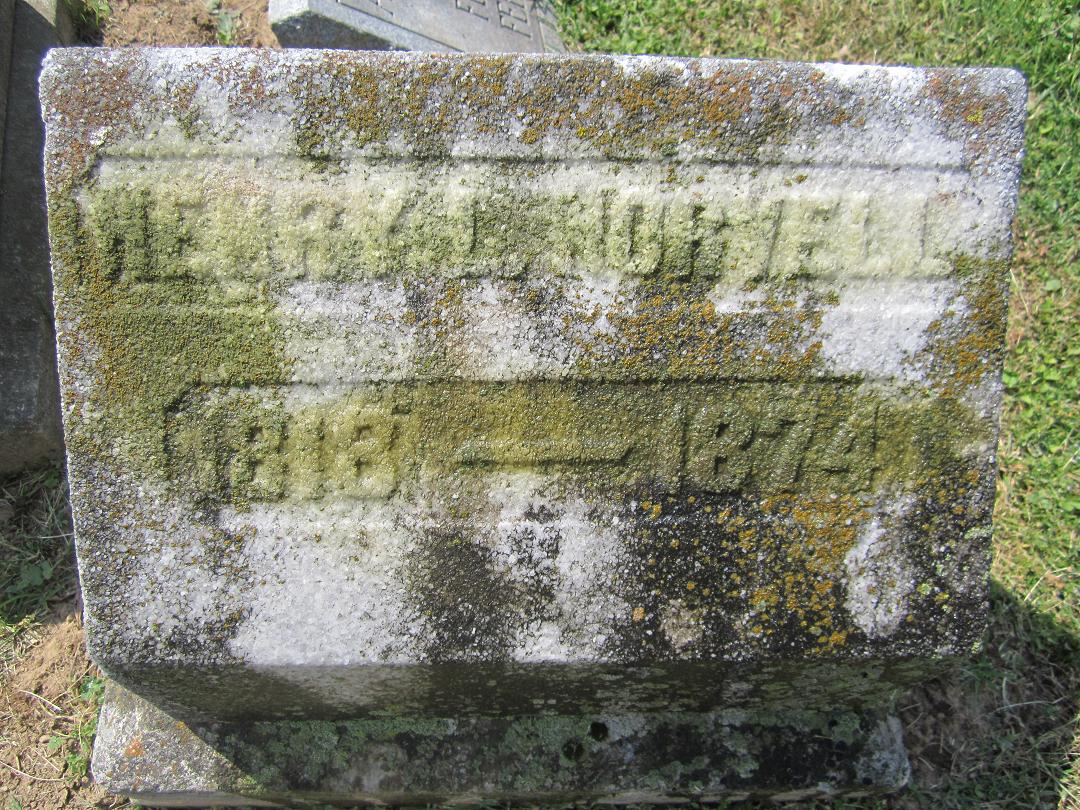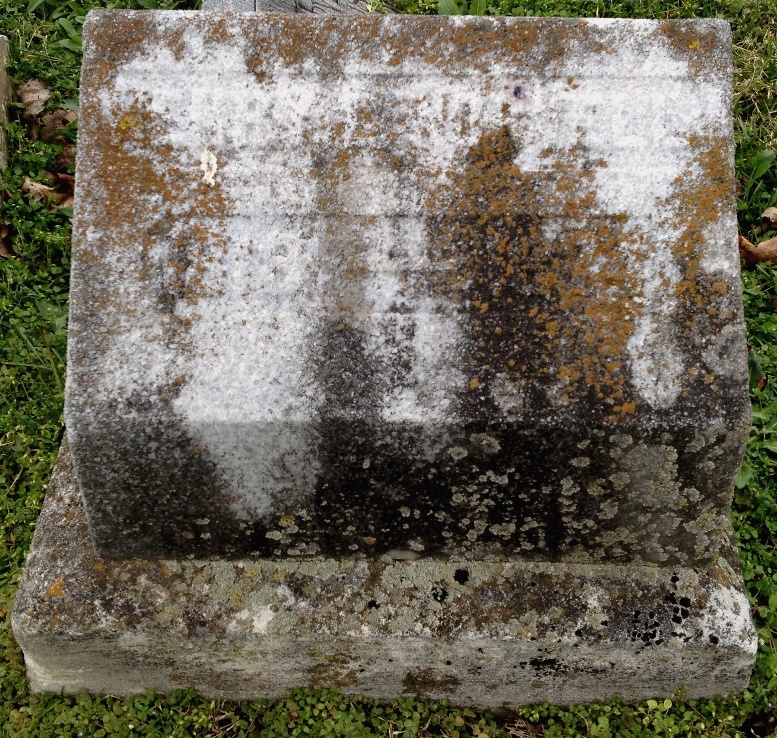Laura Jane Sevier was the granddaughter of John Sevier and Catherine Sherrill and daughter of George 158
Washington Sevier. John Sevier (born 1745, Virginia -died September 24, 1815, Ft Decatur, AL) was the commander
of the volunteers at the battle of King's Mountain during the Revolutionary War. He served as Governor of Tennessee
and was also the first representative from Tennessee elected to the United States Congress in 1810.
George Washington Sevier (born February 1, 1782) after his father John's death they moved to Overton County, Tennessee. He was Clerk of the Circuit Court there for several years. He was an Ensign of the Second Infantry, August 22, 1805, Second Lt August 22, 1805, 1st Lt, May 31 1807, Captain of Rif's Company, May 3, 1808. Lt Colonel, July 6, 1812. Colonel , January 24, 1814. He served in the War of 1812.
As a wedding present, Laura's grandfather, John Sevier, gave her 2000 acres along Franklin Pike. She and her husband built a four room cottage on the land, finished in 1845. During construction of the home, they had temporary housing, a one room house, which still stands on the property of Longview Mansion. They also built a potato cellar, spring house, an orchard, a vineyard and a rose garden. They lived there until the Civil War came to their front door in December 1864. By the end of the war, the trees had been cut down and deep trenches had been dug into the land. They sold the land to James and May Caldwell in 1878. The Caldwells, also buried in Mt. Olivet, built Longview Mansion and members of their family lived in it until 1949. The Mansion and land is now owned by Lipscomb University.
Henry, a successful banker like his father, lived in a suburb of Nashville. He also maintained a large farm on the Franklin pike where he raised grain, cattle, and hogs. With the start of the Civil War, Henry and his family took different sides. Henry supported the Union, while his wife and daughters proclaimed their loyalty to the South. While Henry was proclaiming his loyalty, the Nichol's Select School expelled his daughter Cornelia Norvell for displaying a Confederate flag while a troop of Union soldiers passed. Later, during the war when General Hood's starving troops approached the city, Henry opened his storehouse to the starving rebel army. Unfortunately, his home "Leafy Lot" became breastworks, but after the occupation of Nashville by Federal Forces in 1862, he obtained a government position. In this he was lucky, for with the passing of the war, nothing remained of his property.
His obituary was reported in the Nashville Union and American, September 12, 1874: Norvell, Henry L., old and respected citizen, 57, died on the 11th, lived on the Franklin Pike, son of Moses Norvell, and was born 28 February 1818 in Nashville.
Laura Jane Sevier was the granddaughter of John Sevier and Catherine Sherrill and daughter of George 158
Washington Sevier. John Sevier (born 1745, Virginia -died September 24, 1815, Ft Decatur, AL) was the commander
of the volunteers at the battle of King's Mountain during the Revolutionary War. He served as Governor of Tennessee
and was also the first representative from Tennessee elected to the United States Congress in 1810.
George Washington Sevier (born February 1, 1782) after his father John's death they moved to Overton County, Tennessee. He was Clerk of the Circuit Court there for several years. He was an Ensign of the Second Infantry, August 22, 1805, Second Lt August 22, 1805, 1st Lt, May 31 1807, Captain of Rif's Company, May 3, 1808. Lt Colonel, July 6, 1812. Colonel , January 24, 1814. He served in the War of 1812.
As a wedding present, Laura's grandfather, John Sevier, gave her 2000 acres along Franklin Pike. She and her husband built a four room cottage on the land, finished in 1845. During construction of the home, they had temporary housing, a one room house, which still stands on the property of Longview Mansion. They also built a potato cellar, spring house, an orchard, a vineyard and a rose garden. They lived there until the Civil War came to their front door in December 1864. By the end of the war, the trees had been cut down and deep trenches had been dug into the land. They sold the land to James and May Caldwell in 1878. The Caldwells, also buried in Mt. Olivet, built Longview Mansion and members of their family lived in it until 1949. The Mansion and land is now owned by Lipscomb University.
Henry, a successful banker like his father, lived in a suburb of Nashville. He also maintained a large farm on the Franklin pike where he raised grain, cattle, and hogs. With the start of the Civil War, Henry and his family took different sides. Henry supported the Union, while his wife and daughters proclaimed their loyalty to the South. While Henry was proclaiming his loyalty, the Nichol's Select School expelled his daughter Cornelia Norvell for displaying a Confederate flag while a troop of Union soldiers passed. Later, during the war when General Hood's starving troops approached the city, Henry opened his storehouse to the starving rebel army. Unfortunately, his home "Leafy Lot" became breastworks, but after the occupation of Nashville by Federal Forces in 1862, he obtained a government position. In this he was lucky, for with the passing of the war, nothing remained of his property.
His obituary was reported in the Nashville Union and American, September 12, 1874: Norvell, Henry L., old and respected citizen, 57, died on the 11th, lived on the Franklin Pike, son of Moses Norvell, and was born 28 February 1818 in Nashville.
Family Members
Advertisement
Explore more
Sponsored by Ancestry
Advertisement
